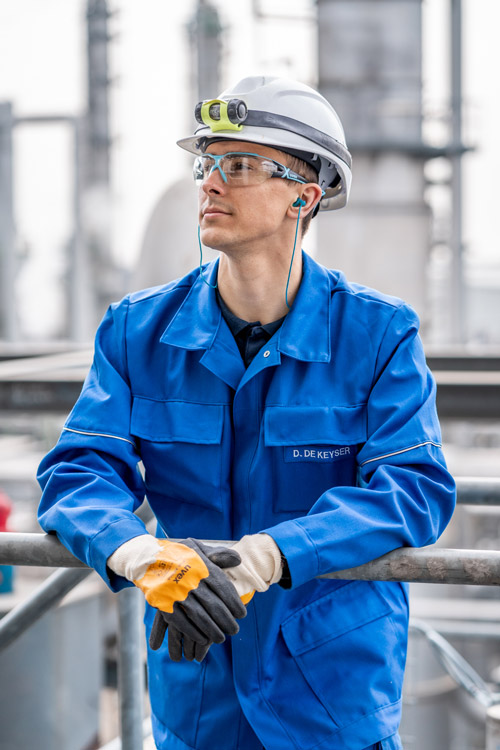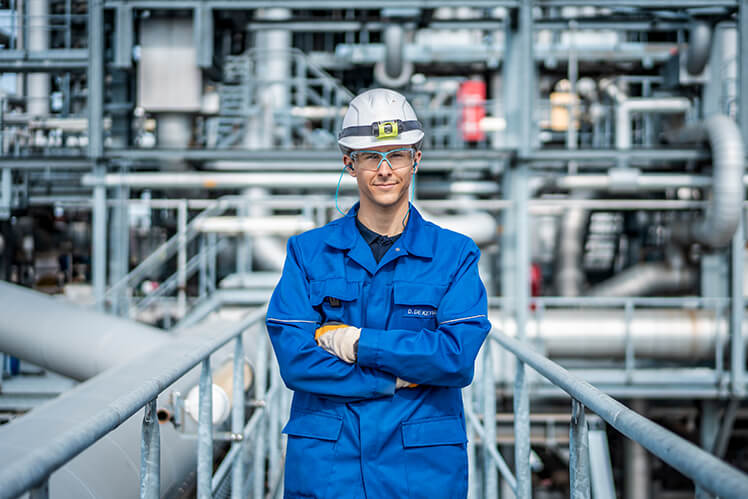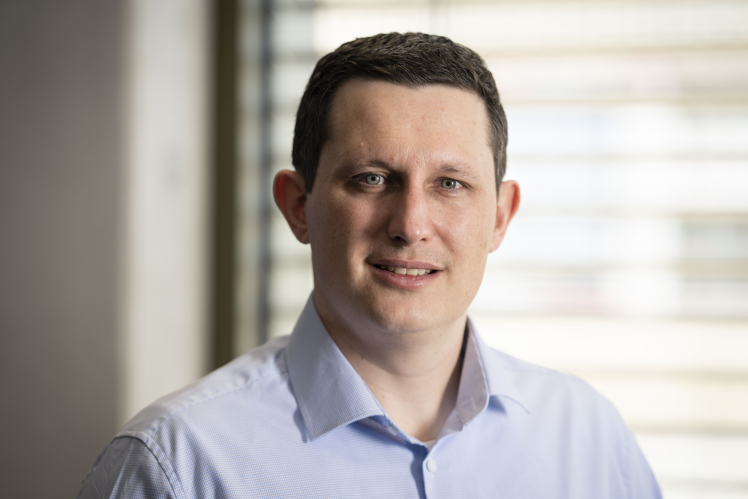Dries De Keyser (23) is one of five process operators who will be staying in Cologne for two years to become an expert in cracking processes. When he’s in Belgium, he likes to ride his bike or go for walks with his golden retriever.
No desk work for Dries because he can’t sit still
Dries is bitten by the chemistry bug. After obtaining his secondary school diploma in chemistry, he continued his studies at Thomas More Hogeschool where he got a bachelor’s degree in chemistry, specialising in chemical process technology. This solid foundation opened up many job opportunities. However, Dries soon realised that he wasn’t going to spend his entire day behind a computer.
I like to be active, an office job is not for me. The job of process operator is so varied, it’s perfect for me. You start outside, you carry out inspection rounds and perform routine tasks. And afterwards, there are the things you have to do less often. For example, you learn how to take a pump out of service and how to rinse it. In the next step, you work in the control room where you operate the plant from the inside. In other words, I’m constantly growing and learning.”
This need to learn and progress has taken Dries to other countries. “Project ONE gave me the opportunity to follow a training course in Cologne to gain experience in the cracking process. For two years. It really was a once in a lifetime opportunity for me. The experience I gain in Cologne is guaranteed to get me off to a flying start at Project ONE. It wasn’t a difficult decision to make.”

Gathering knowledge and experience in Cologne
Meanwhile, Dries and four other Belgian colleagues have been working at INEOS in Germany for six months. “In Cologne, we work in a five-shift system. We all work in different shifts which speeds up integration. And although we also followed a language course, you pick up German a lot faster that way. A cycle in a shift schedule lasts five weeks. In those five weeks, you do early, late and night shifts. In between, you have four to five day weekends. I usually go home, because Cologne is not that far.
“In Cologne, the idea is that we follow the same learning cycle: from the outside in. At the end of our stay, we’ll also experience a turnaround which is when the plant is shut down for inspection and maintenance. It happens every five years. That’s going to be quite something. We’re not expected to be experts after those two years, but we should have a very broad knowledge.” Thanks to that turnaround, we’ll also gain experience in that important aspect of managing a cracker.”
“We all work in different shifts which speeds up integration”
Project ONE raises the bar
Dries’ time in Cologne has been an investment in his future at Project ONE. “Next year in November we’ll be back in Antwerp and we’ll be able to see the construction of Project ONE up close. It’ll be an experience I’ll take with me for the rest of my career. I’m really looking forward to it.”
When asked why he finds Project ONE so important, Dries answers resolutely: “Climate change is dominating the news. With Project ONE, we’re building a plant with the best technologies available. Emissions will be far less: half as much as the cleanest crackers. This means we’re raising the bar in terms of emission standards. The permitted emissions of an average cracker in Europe are calculated based on the emissions of the 10% most environmentally friendly crackers. Other European plants will therefore also have to invest in more economical processes to meet these standards.
“The fact that, as a process operator, I can be part of that, is great. I can also make an impact and even influence the entire chemical industry in Europe and make it more environmentally friendly. It really is a huge opportunity.”




